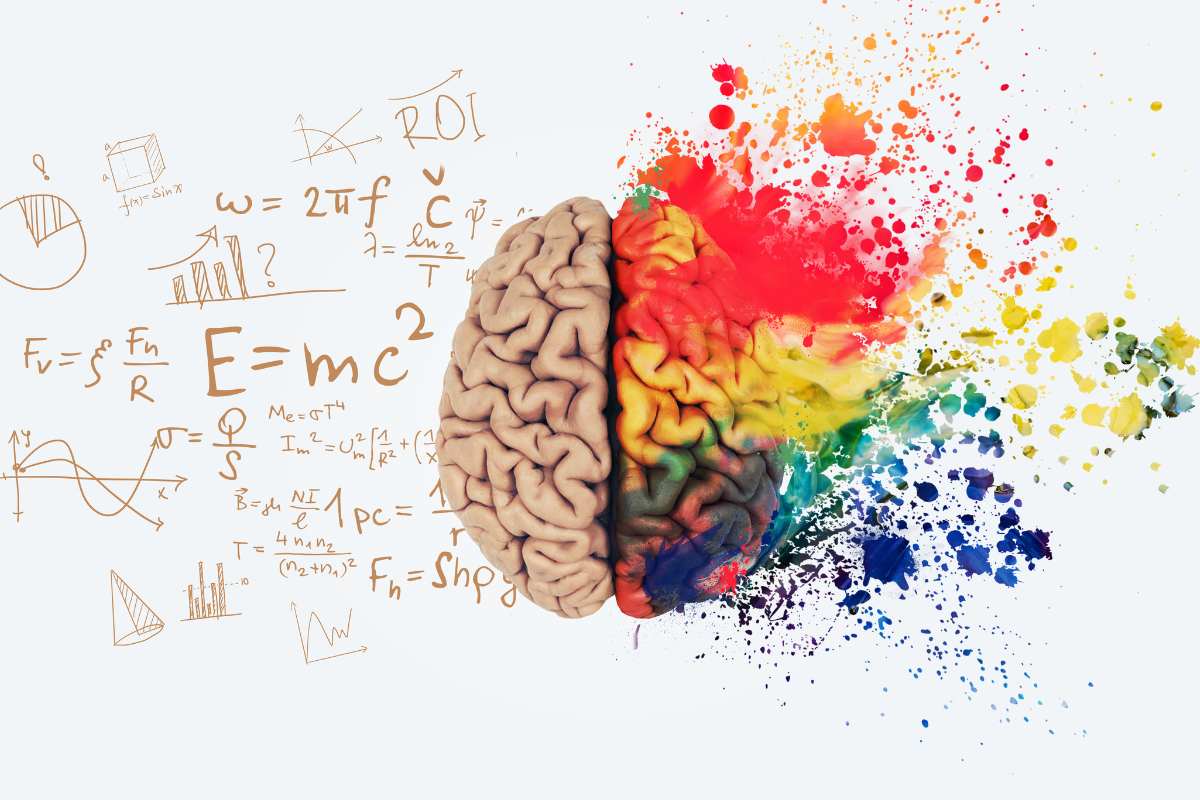
Mental health is a critical aspect of the overall health of an individual but, more often than not, it seems to get disregarded by many. It is important to note that when we say mental health, it does not always have to refer to extreme psychological issues or disorders. Whenever the discussion comes regarding mental health, there is an assumed social stigma associated with it. However, mental health care is a holistic approach that enables the brain to function properly and to its full potential and does not necessarily need to be associated with a specific “disorder”.
Just taking a look at the statistics, in this urbanised world, mental health has become as much of a pervasive issue as obesity or diabetes. According to a report published by the WHO in 2019, one in eight people globally were suffering from some type of mental health issue, be it anxiety, depression or something else. According to a NIMHANS report of 2016 around 14% of the Indian population needs improved access to mental health care services.

Among the diagnosed population, which is already underrepresented in India, the prevalence of various disorders has been shown in the figure above based on a report by the National Centre for Biotechnology Information (NCBI). Depressive and anxiety disorders are the most prevalent and these are the ones that require a holistic lifestyle management regimen to manage.
The mind is a complicated organic machine and based on all my years of experience, it is always easier to maintain it than to repair it. To ensure that your mind keeps working at optimal levels, it is always important that you imbibe habits and practices that help reduce the stress that the brain and the body go through. One of the ways through which we can do so is by providing the brain with breaks throughout the day.
Without regular breaks, mental fatigue and dips in performance are just around the corner. Whenever the mind wanders off from the task at hand, it is essentially taking a break and entering a state known as the default mode network (DMN). Spending time in this zone, helps the brain to recharge and therefore make better sense of the information it has to process for the work at hand. Here I have compiled a list of other activities that you can incorporate into your daily lives apart from the DMN zone that might help you take a break and give your mind time to recharge.
Sleep

One of the most important ways that the brain recharges physiologically is through sleep. According to a study conducted by LocalCircles on March 17 2023, 55 per cent of Indians are not getting enough sleep. Another study by the fitness company, Fitbit, found that Indians are the second most sleep-deprived country in the world. According to a study by Eugene and Masiak (2015) published in the National Library of Medicine, “When sleep is deprived, the active process of the glymphatic system does not have time to perform that function, so toxins can build up, and the effects will become apparent in cognitive abilities, behaviour, and judgment.” This means that the mind needs REM sleep for it to recharge enough to be able to process new information. Therefore, a healthy 7-8 hours of sleep helps in improving brain function; however, there are quite some hurdles in getting that sweet sleep, which our body requires. The disturbance can be caused due to many reasons which include your sleeping, duration, posture and the type of bed or mattress you sleep on. Getting adequate sleep also ensures that you avoid some other health functions that can then affect your brain function.
Take a walk

Walking is another way through which you can refresh your mind, especially when you have been working for some time and seem to have hit an impasse or a metal block. It has been found that free walking can help boost creative thinking. Studies discussed in a Medical News Today article by Beth JoJack found that even just 60 minutes of free-walking, especially in nature, reduces activity in the stress-producing regions of the brain.
Try something new

Repetition can be a great way to train the mind to do something, but mundane repetition can also be a hindrance to creative thinking and productivity. If you want to be able to bring your mind to a stage where you can come up with new ideas and recharge your brain, one of the things that you can do is come out of your comfort zone and try new things. According to Dr. Edward de Bono, the author of the book Lateral Thinking, engaging in lateral activities that do not directly relate to your primary work, adds different experiences to the old ideas and helps recharge the brain to think in creative ways.
Explore nature

Nature is the ultimate solace for the brain and just 60 minutes outside can do wonders for you. According to a bunch of studies mentioned in a prominent Medical News Today article, just meandering for 60 minutes in nature can drastically help in reducing your stress levels while spending a similar amount of time in an urban setting does have similar effects. This highlights the need for the human mind to be exposed to nature which helps the brain to recover from exhaustion.
Practise mindfulness
Studies have shown that mindfulness training or deliberate mindful mind-wandering practices can support creativity. Even in the learning setting, purposeful inclusion of mindfulness in learning settings can benefit student learning, creativity and wellbeing. Mindfulness practices have been scientifically shown to improve skills or habits of mind that can support creativity.
Listen to music

Music has always been a go-to exercise to relax the mind and the body and it has a proven track record of being able to influence the state of the mind. A study published in the journal Frontiers noted that music appeared to “enhance creativity through factors such as emotional arousal, cognitive interference, music preference, and psychological restoration.” Listening to music can also help in improving the learning and memory skills.
Use active rest techniques
Active rest is another technique that we can use to recharge our brains. Unlike sleep, which is an unconscious form of rest for the brain, active rest is done consciously. There are four different types of active rest that we can engage in to aid in recharging our brain and body. These include physical (naps, yoga, and breathing exercises), mental (relaxation, guided visualization, and self-hypnosis), spiritual (prayer, meditation, and contemplation) and social (connecting with other individuals on a deeper level). These techniques inherently allow the brain to go into a more relaxed state and recharge for the work at hand.
Spend time alone

In addition to social interactions, the brain also can be refreshed through solitary methods or solo rest. Spending time alone with your thoughts can also be a relaxing exercise for the brain as it does not receive external stimuli from others. Psychologists recommend some time to be reserved for solitude as it can help the brain reboot and get refreshed, especially if you are working in a highly social environment. This should ideally also include disconnecting from all forms of social communication like phones and laptops as well.
Do something you love
Doing things that you love can also help in rejuvenating your brain and refreshing it from your task at hand. This is a type of lateral exercise that you can do to get a mental break. This could be any activity that you find exciting or energizing such as reading, playing sports, or going to a concert with friends.
Exercise

Movement is another aspect that can aid your brain function, and as such exercise can also become part of your routine if you are seeking a mind-refreshing break. Exercising can help improve your DM functionality and help prevent the deterioration of key regions in the brain’s DMN.
Don’t multitask
One of the most important things to note is that you should not overwhelm the mind by doing too much at a time. Multitasking, therefore, can overwhelm the brain and affect your eventual productivity. So, if you have too much on your plate at a time and are struggling to juggle all those at the same time, this can negatively affect your mood, creativity and output. It is much more advisable to allow your brain to focus on just one task at a time which helps to keep it relaxed and functioning efficiently.
Let go of opinions and judgments
A very effective tool that you can practise in your everyday life to free up your mind and reduce the stress on it is freeing your mind of opinions and judgements about everything around you. You might think that this is an involuntary response, but no, it is a voluntary choice that we make. Just with a little bit of determination, we can allow our mind to settle down such that it is not thinking about forming opinions about everything that we experience. This frees up the mind tremendously and allows it to have a much more relaxed time.
Daydream
Daydreaming is another way that is extremely effective in recharging your brain and fostering creativity if done effectively. A study in the Human Brain Mapping journal has shown that when done properly along with mundane activities like doing the dishes or doing laundry, it can be a powerful way to foster creativity. This aspect of positive constructive daydreaming (PCD) involves creating playful and wishful images of activities that you like and allowing the brain to enjoy the daydream, thereby inducing it to be more relaxed.
Conclusion
It is clear based on studies that have been mentioned here and a whole vast ocean of other studies, that the brain requires regular breaks from monotonous tasks to function properly and with peak performance. Operating in such a way for a long time can cause undue stress to the brain and affect our functioning, mood and overall physiological disposition. Therefore, to maintain good brain health, we must maintain a healthy routine of taking “brain breaks” from time to time to ensure that the rain gets recharged and ready for creative engagement without taking undue stress.






